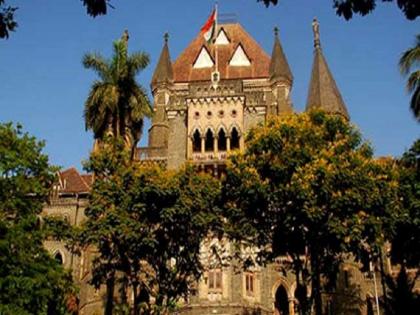Religion Is One Consideration In Custody Cases, But Child Welfare Is Primary Factor: Bombay High Court
By Lokmat English Desk | Updated: April 29, 2025 18:11 IST2025-04-29T18:11:01+5:302025-04-29T18:11:58+5:30
The Bombay High Court was hearing the custody case of Pernia and Sahil’s three-year-old daughter. The Bombay High Court ...

Religion Is One Consideration In Custody Cases, But Child Welfare Is Primary Factor: Bombay High Court
The Bombay High Court was hearing the custody case of Pernia and Sahil’s three-year-old daughter. The Bombay High Court ruled in favour of the mother and rejected the father’s petition. The court prioritized the child’s needs and stated that the mother is financially capable enough to take care of her daughter. The court mentioned as stated in Section 17(2) of the Guardians and Wards Act, religion can be a consideration in custody matters, but it should not be the primary factor. The division bench of Justices Sarang Kotwal and Shriram Modak heard the case.
Both judges opined that the child will stay with her mother in Delhi. The court reiterated a prior order that prohibited international travel without the court’s approval. Sahil raised concerns that Pernia, a US Citizen, might relocate their daughter abroad. Sahil’s lawyer cited Section 354(2) of Mohammedan Law regarding custody, but the bench dismissed, citing a reference to a Supreme Court ruling affirming the mother's primary guardianship unless harmful to the child.
Religion Is One Consideration In Custody Matter But Welfare Of Child Paramount: Bombay High Court | @NarsiBenwalhttps://t.co/iuEPOh8iJz
— Live Law (@LiveLawIndia) April 29, 2025
The court noted, "In the present case, the child is hardly 3 years of age. The apex court has the Indian Courts are strictly governed by the provisions of the Guardians and Wards Act, 1890, as applicable to the issue of custody of the minor within its jurisdiction.”
The bench dismissed the argument put forth by Sahil and said that since the parties are Muslims, the provisions of the Guardians and Wards Act, 1890, will not be applicable. The court in its order said, “In considering what will be for the welfare of the minor, the Court shall have regard to the age, sex, and religion of the minor, the character and capacity of the proposed guardian, and his nearness of kin to the minor. Thus, the religion of a party is not the only consideration before the Court in such cases for consideration of the welfare of the child. The religion of the minor is only one of the considerations, but it is not a decisive, overriding factor. It is only one of the many factors which the Court has to consider as to what is for the welfare of the minor.”
The case’s verdict emphasises the importance of child welfare, which goes beyond religious personal laws. The court reaffirmed India's commitment to a secular legal system by highlighting adherence to secular principles in line with international child rights norms.
Open in app